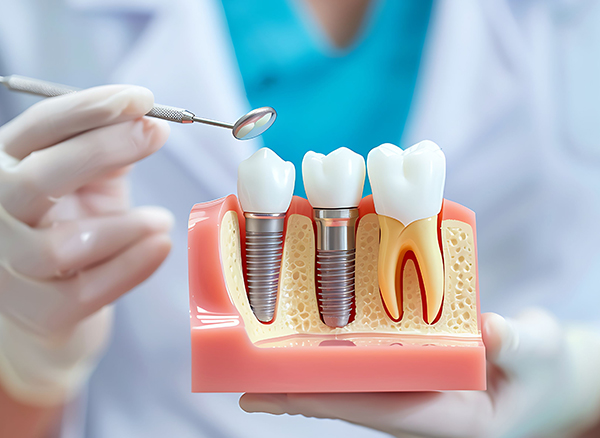Root Canals 101: Your Essential Guide
If you’re experiencing severe tooth pain or have a damaged tooth, a root canal might be just what you need. Here’s a brief overview to understanding root canals, their benefits, and debunk some common myths surrounding the procedure.

What Is a Root Canal Treatment and What to Expect?
A root canal is a procedure designed to save a tooth that is suffering from severe damage or infection. The treatment involves several key steps:
- Initial Examination: Your dentist will start by examining the tooth and may take X-rays to determine the extent of the damage or infection.
- Removing the Infected Pulp: Local anesthesia is administered to numb the area. The dentist then creates an opening in the tooth to access the pulp chamber, where the damaged or infected pulp is removed.
- Cleaning and Disinfecting: The interior of the tooth is thoroughly cleaned and disinfected to remove any bacteria and debris.
- Filling and Sealing: The cleaned space is filled with gutta-percha, a biocompatible material, and sealed to prevent future issues.
- Restoration: Finally, a crown or filling is placed over the tooth to restore its function and protect it from further damage.
Why Are Root Canals Important?
- Pain Relief: Root canals alleviate severe pain caused by infection or decay, offering significant relief.
- Tooth Preservation: By saving the natural tooth, root canals prevent the need for extraction and avoid complications like shifting teeth.
- Restored Function: After the procedure, the treated tooth can function normally, allowing you to chew and speak comfortably.
- Infection Prevention: Removing the infected pulp helps stop the infection from spreading to other parts of your mouth.

How to Care for Your Tooth After a Root Canal?
- Good Oral Hygiene: Brush and floss regularly to maintain overall dental health.
- Follow-Up Visits: Attend all scheduled check-ups to ensure the tooth is healing properly.
- Avoid Hard Foods: Until the tooth is fully restored, avoid hard foods that might damage it.
Common Misconceptions About Root Canals
- Myth: Root Canals Are Extremely Painful: In reality, the procedure is performed under local anesthesia, so you shouldn’t feel pain during the treatment. Any post-procedure discomfort is usually mild and temporary.
- Myth: Root Canals Can Make You Sick: There is no scientific evidence linking root canals to systemic health problems. The procedure actually helps prevent further infection.
- Myth: Root Canals Aren’t Worth It: Some believe that a tooth with a root canal will eventually fail. With proper care, a treated tooth can last as long as any other tooth.
In Summary
Root canals are a valuable treatment for saving damaged teeth and relieving pain. If you think you might need a root canal or have any questions, contact our team today to see if this treatment is right for you!


